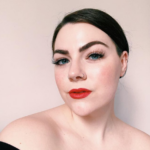Jeffree Star's skin is fucking perfect. So much so, that even when he's not wearing his beloved high-coverage foundation, you find yourself thinking, "How the hell is that even possible?"
Sure, great genetics and a penchant for luxury skin care play a part, but Star says there's only one thing responsible for his perfect complexion — and it's probably something you've never even thought about.
Jeffree Star says he doesn't use *any* beauty products with alcohol in them.
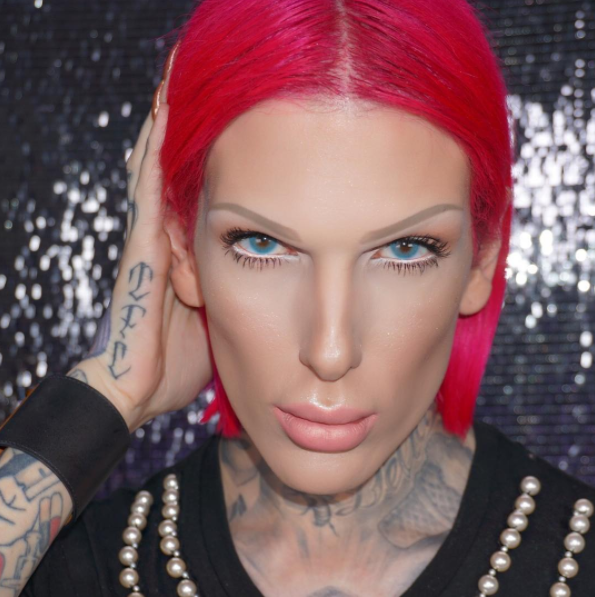
For those who don't already know, alcohol has multiple purposes when it's used in makeup and skin care products, and it can be both good and bad — but some experts encourage swearing it off entirely.
Star has never really specified exactly how dedicated he is to this rule, but it is one of his main tips to prevent aging, as he's stated in a handful of videos in the past.
Does one HAVE to avoid alcohol altogether to achieve perfect skin? Many dermatologists say no — but understanding it is still necessary.
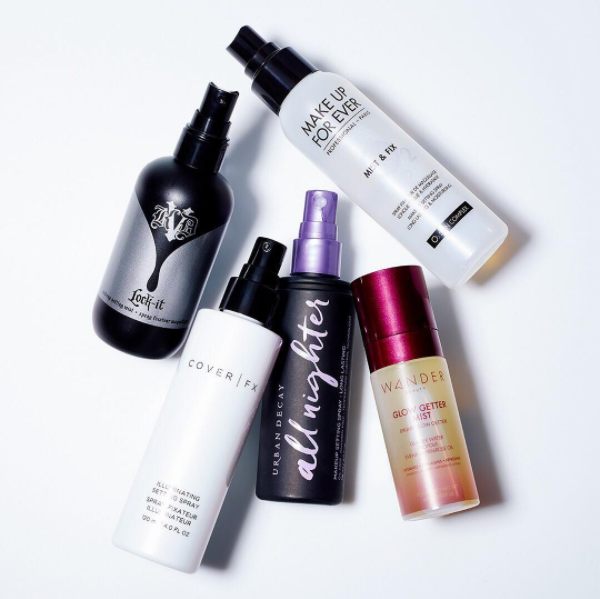
"Although there aren't any alcohols that need to be avoided at all costs, it's more about understanding why it's in a product, and whether the concentration is high enough to merit attention," says Dr. Estee Williams, a dermatologist in New York City.
And that's possible to do, but it's a little more complex than simply looking for "alcohol" on the ingredients list. For starters, "alcohol" is a super vague word.
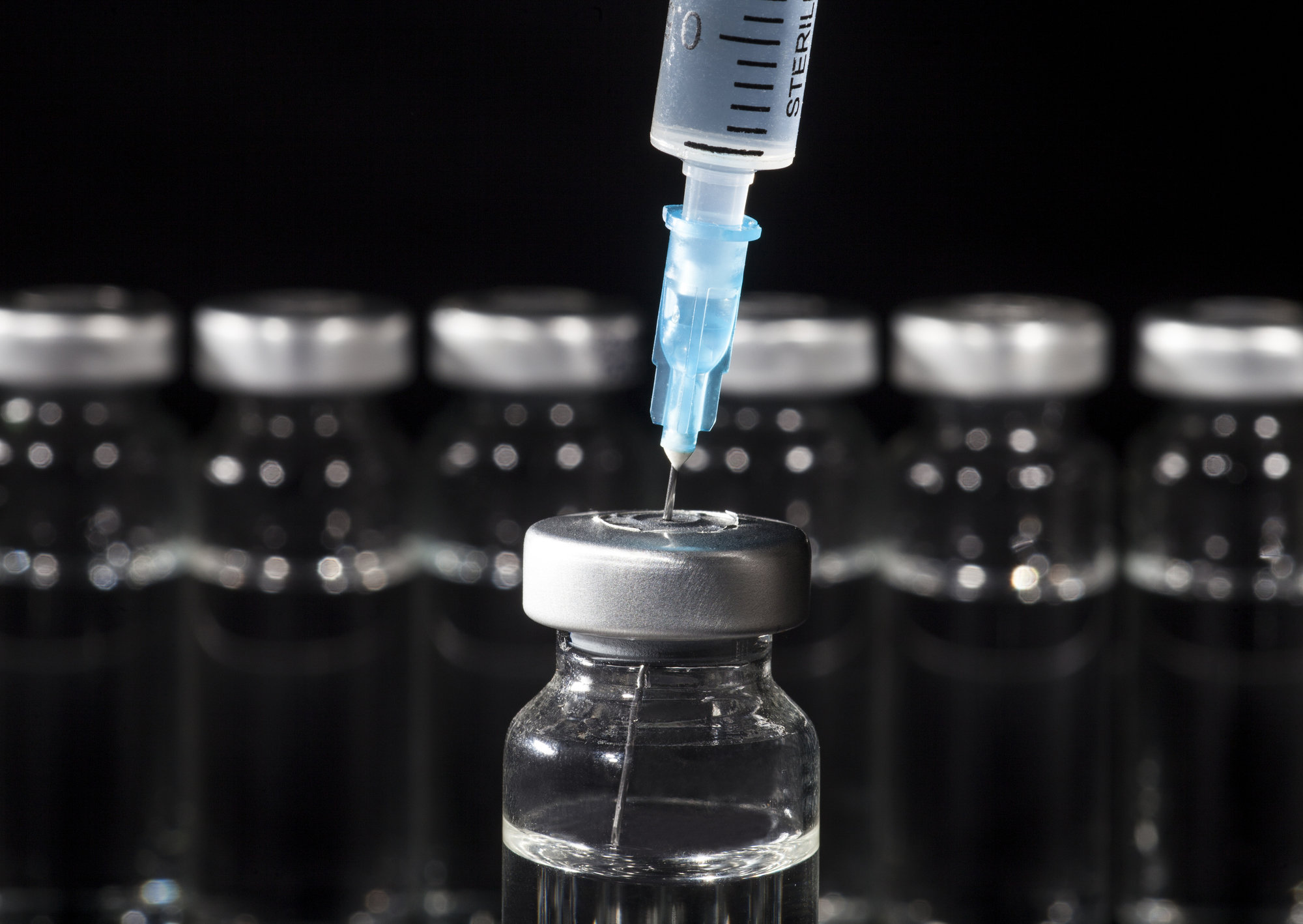
Theoretically speaking, there are infinite types of alcohols, Williams says. This is because the word "alcohol" refers to any molecule containing what's known as a hydroxyl group (that's hydrogen and oxygen) at one end. And a LOT of different substances, especially ones found in beauty products, can have that chemical makeup.
There are a multitude of alcohol types, but there are three used in beauty you should know how to identify. First, there's ethanol.
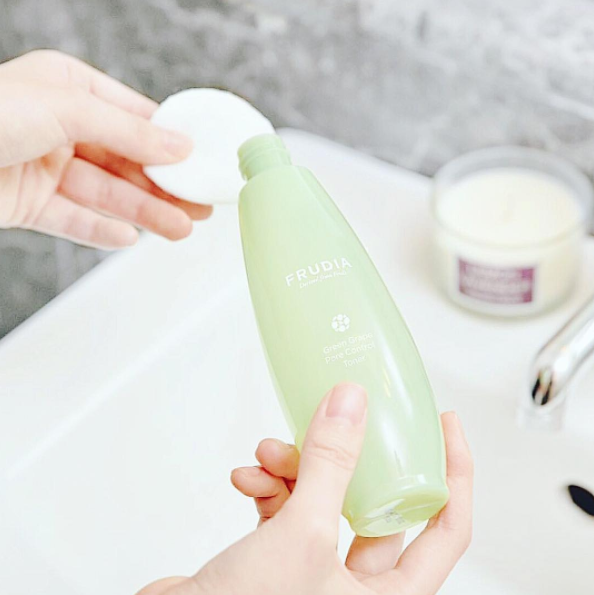
"In cosmetic labeling, the term alcohol used alone refers to ethanol," Dr. Williams says. "This reference is so specific that cosmetic products can be labeled 'alcohol-free' so long as they do not contain ethanol — even if they contain other alcohols, such as cetyl, stearyl, cetearyl, or lanolin alcohol."
Ethanol is used mostly in products aiming to tighten pores, like astringent toners. It's not all bad — it helps other ingredients like vitamins and retinol penetrate the skin — but it can be overly drying in high enough concentrations, which can lead to peeling and even breakouts.
Then, there's denatured alcohol — which is the one you've got to look out for most.
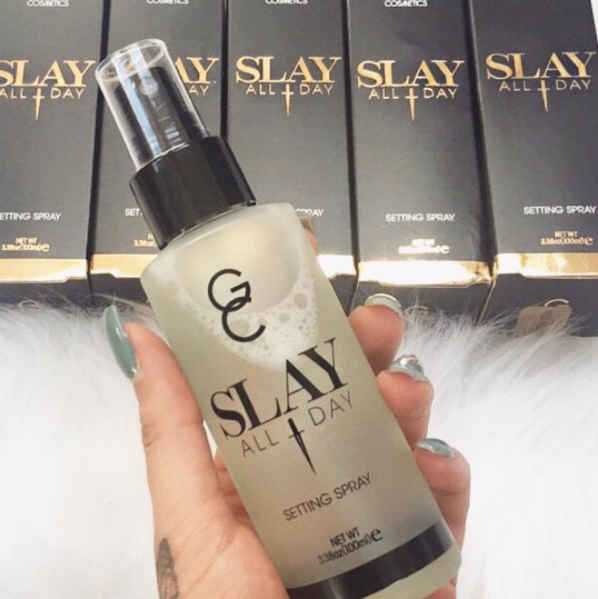
"Denatured alcohol is essentially ethanol that has been changed by the addition of 'denaturants' that render it unsuitable for beverage use," Williams says. "By denaturing the ethanol, facilities bypass the need for having a special alcohol permit."
This alcohol appears on labels as "SD alcohol," and it can also be OK in very small doses. But denatured alcohol corrodes the skin at a higher rate than ethanol when used in high concentration. Look out for it in any matte or mattifying products, especially primers and setting sprays.
And finally, there are fatty alcohols — which are actually crucial to a lot of product formulas.
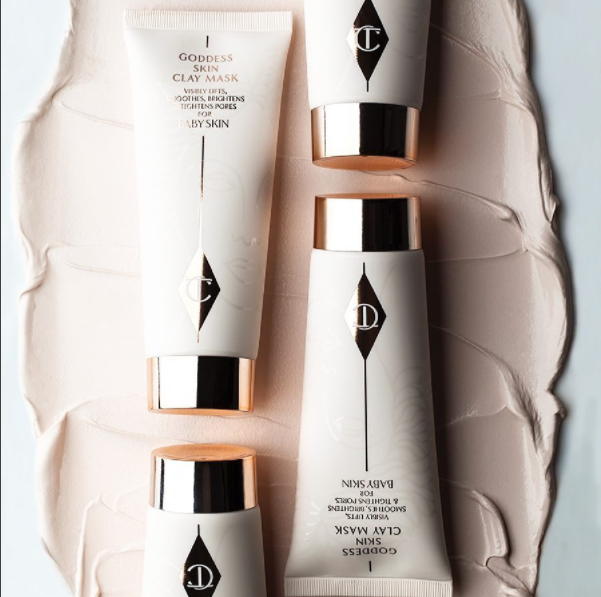
"Fatty alcohols are a harmless, inert group of alcohols very commonly used in skin care products as an emulsifier," Williams says. Emulsifiers are substances used to keep oil and water from separating or to thicken a cosmetics formula. "Fatty alcohols are thicker than butter at room temperature, and help to give a product good spreadability," she says.
You're most likely to find these kinds of alcohols in creamy products like liquid foundations and moisturizers. But you shouldn't be alarmed if you see any of their names (cetyl, stearyl, and cetearyl alcohol) on a label because they don't do any skin damage.
So it's not as simple as just avoiding alcohol altogether. According to Dr. Williams, chemistry and product formula play a heavy role in determining when, if, or how alcohol will affect skin.
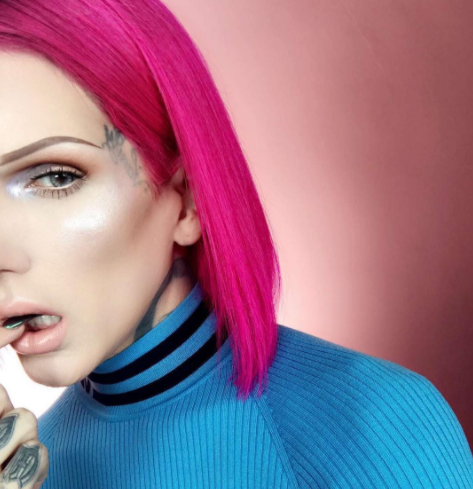
"Sometimes a small amount of alcohol is necessary for another active ingredient to be there," Williams says. "Sometimes alcohol is included in a product because it was used during the extraction process of one of the other ingredients on the list, for example."
So alcohol might be on your product's label, and it might barely matter.
You can determine this by noting an alcohol's placement on its ingredient list — the sooner it's mentioned, the higher its concentration.

"There are no hard-fast rules when it comes to alcohols because it really depends on the type of alcohol, the concentration of the alcohol, the use of the product, and your skin," Williams says. "A product claiming to be a moisturizer for sensitive skin should not have alcohol listed in the top three ingredients, but a hand sanitizer or astringent usually will."
This sounds a little complicated and time-consuming, but here's the good news: Using products without harmful types of alcohol won't break your budget.
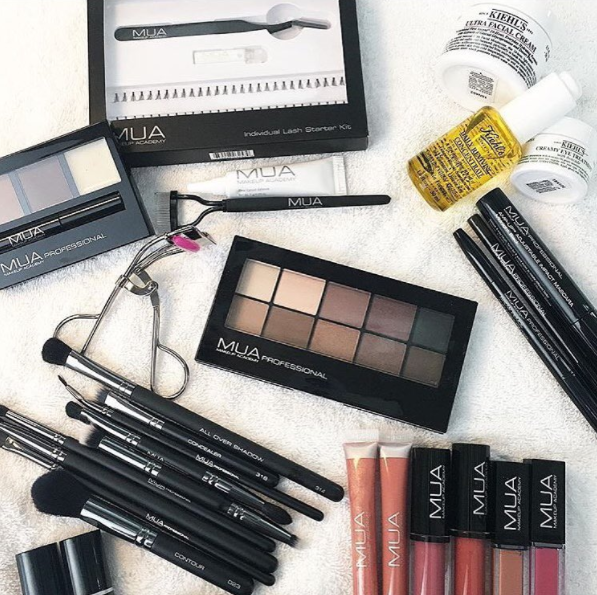
According to Dr. Williams, there is no widespread difference in use of alcohol among luxury, high-end, and drugstore beauty products.
So is alcohol the devil that Jeffree Star sometimes makes it out to be? Not necessarily. But is he right for paying close attention to what ingredients are in his products? Absolutely.
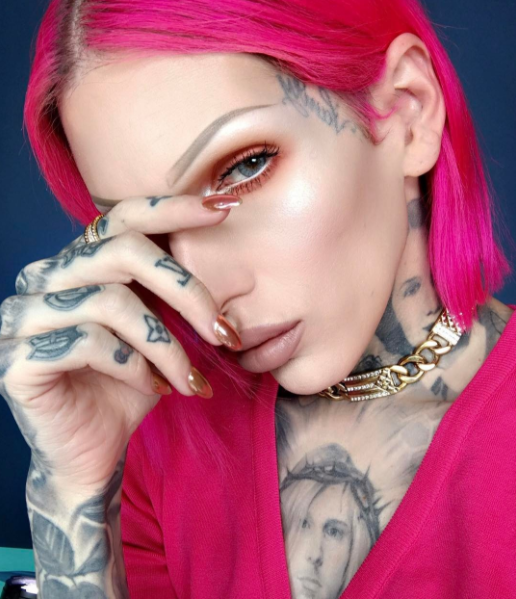
Even if you aren't going to start obsessing over alcohol after reading this, at least consider this: READ YOUR LABELS.
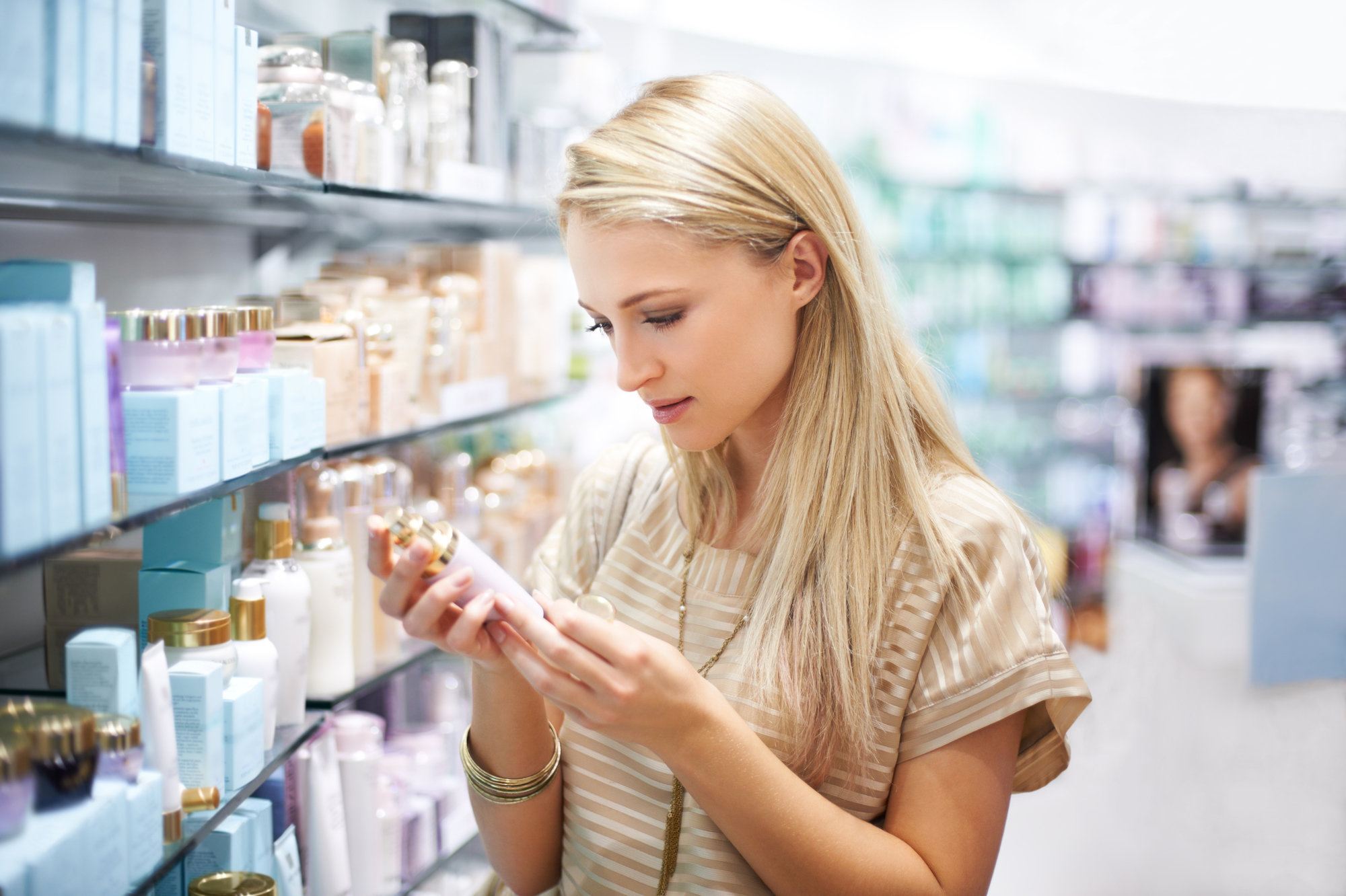
You'll never know what you're putting on your face until you do.
Want more? Visit our Eyeliner Addict Facebook page and like us for more breaking beauty news!
